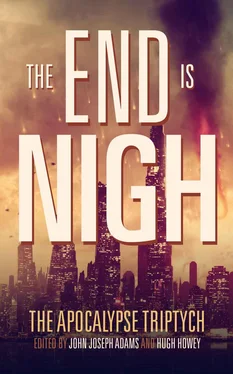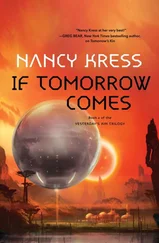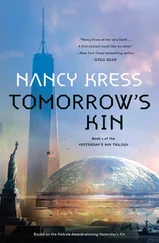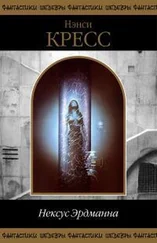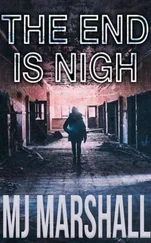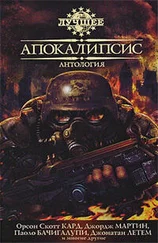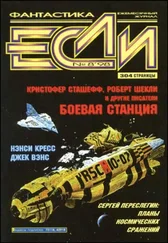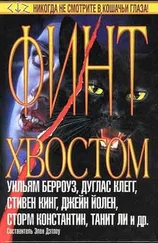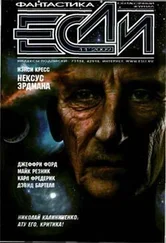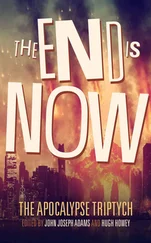“Give it to me, Beth. The honest assessment.” Aiden’s brown eyes are lit up like gin under a black light. He’s two drinks in, which, considering the strength of this place’s rum-and-colas, is closer to four. The most recent DOI press release sets the remaining atmospheric oxygen levels at six weeks, maximum, and Aiden McCallum is the only man in the world to whom that could possibly be good news. “They’ll have to increase our funding now, right?”
“Jesus, Aiden, give it up.” Beth has been willing to play along for the last few weeks—Wednesday nights would get damn lonely, otherwise—but even she has a limit. “You can’t upload yourself into a damn computer. We’re talking decades of development, centuries even. You can’t just throw money at Immerse to turn it into a functional alternate whatever .”
The last word comes out more harshly than she intends, waffling over the word dimension , which sounds too science-fictional. Beth rubs the bridge of her nose as though she can massage away the soreness. Nose, throat, lungs, everything aches these days.
Her phone beeps from deep in her purse before Aidan can say something stupid. It’s a text from Farah: Where do you keep the baking sheets?
Cabinet to the right of the fridge.Beth hits send too quickly, curses under her breath. Wait, why?
“Is that crazy woman still living with you?” Aidan asks. It looks like he’s letting go of Immerse for the moment, which is probably for the best—but as far as Beth’s concerned, Farah Karimi is hardly a safer subject.
“She’s fine.” Beth forces herself to smile. “Going batshit with cabin fever, but then, who isn’t?”
Aiden shakes his head and stands up to get another drink, almost knocking over his bar stool. Another text from Farah shimmers on the small screen.
Do you have sand anywhere?
WTF are you doing?
Work.A second later: Is the sugar still in the cabinet over the microwave?
Yes.
Can’t reach. Where R U?
Now Aiden is deep in conversation with the bartender, gesturing at the television that hangs above the shelves of neon-colored bottles. It’s a basketball game, but the DOI announcement is scrolling along the bottom of the screen on a blue banner. The world has a use-by date now, just like a gallon of milk, just as arbitrary, just as inevitable.
Beth looks down at her phone. Farah again: I need sand or sugar. Also aquariums. Plural. Where’s the nearest fish supply shop?
On my way.
• • • •
The Second Match
Immerse is long past the data-gathering stage, but Beth still catches herself in the habit of collecting sensations, of watching the fluorescent light play across the raised numbers on her credit card, of running her hand along the smooth-sanded barn boards of the bar’s countertop, picturing the precise regions of her brain that would light up in a scan as she alters the pressure of her fingertips. After years of this, she knows the patterns of wood from laminate from drywall, granite from sandstone, leather from writing paper. The sound of her heels on the bar’s tile doorstep compared to the sound of Farah’s rubber-soled crutches in their apartment’s tile stairwell. Some senses are impossible to program. Colors, for example—but she’s used to dreaming in black and white, and so is everyone else, if they’re honest. Smells are also difficult. Beth can hardly remember a smell—even inside Immerse—that isn’t smog and sulfur dioxide, the half-electric scent of a struck match.
She fits her carbon mask over her nose and mouth and strides quickly across the street to the enclosed bus stop. In the June twilight, the air is actually visible—shimmering, tangibly thick, settling between the restaurants, bakeries, furniture stores, and boutiques like a black-gray mist. The bus stop’s air filter sounds like it’s gasping for breath. Soon scrubbing out the pollution won’t do any good; there won’t be enough oxygen left in the air to make it breathable.
The bus rolls to a stop, and Beth darts from the enclosure to the top of the boarding stairs. Even the short climb leaves her winded. As usual now, the bus is almost empty, and she has no trouble taking a window seat. Not that it’s worth looking out. It’s a night in late June but it doesn’t feel like summer, not with the air so close. The anxiety is gone, Beth thinks, the clear gold glimmer that used to come with summer twilight, when everything is so fresh and open that it takes your breath away, when the sounds of traffic and sirens and thunderstorms made your stomach flutter with excitement.
It doesn’t feel like June without a sudden burst of agoraphobia.
• • • •
The Third Match
She gets back to the apartment, finds Farah curled on the short couch in the corner of the front room, seemingly asleep. The sight makes her chew her lip, and she’s not sure why. Farah looks sickly, almost transparent these days, her thick hair pulled back with a bit of elastic, no make-up on her round, dark face. When she took the second bedroom three months ago, Farah warned Beth that she never eats when she’s working on a project, just sticks to liquids, and it’s starting to drive Beth mad. There’s a gallon of milk uncapped, souring on the kitchen counter, half a pot of coffee grounds clogging the old sink.
The door at the back of the narrow kitchen has been left ajar, and the back room is a complete disaster. Farah’s crutches lean against the asthmatic air conditioner, which has been hastily patched with blue electric tape to stay as airtight as possible. A stack of books has been accumulating around the ironing board for weeks, staggered and tilting like a bizarre art piece. Architecture books, landscape, interior design. Neuroscience textbooks and monographs on alternate reality.
What do you work on? they’d asked each other during that first phone call. Computer games , Beth had said. Memorials , said Farah Karimi.
All of Beth’s cookie sheets, plus all of her muffin tins and a loaf pan, cover every available surface. Each holds a tiny sugar landscape, dunes and valleys, a few toothpicks rooted in clay. Trees? Supports for something larger?
I need to work with my hands , Farah said. To touch things, mold them. I can’t start on a sheet of paper .
Beth takes a deep breath, goes back into the front room.
“What is all that about?”
“ That is an entire afternoon’s work. Don’t touch.” Farah’s voice sounds distant, sleepy. Her hands are steepled and pressed against her lips. She doesn’t open her eyes. “You had extra sugar in the back of the pantry. I still need the aquariums, though. And matches.”
“I’m not sure you should have anything with sharp edges or anything that catches on fire until you explain what’s going on with my cookie trays.”
“Here.” Without lifting her head, Farah fumbles amidst the mess of legal pads, printouts, magazine pages and napkins on the coffee table, grabbing something that has drifted to the edge. She holds out a sheet of what looks like paper towel. Blue ink has bled through from the page behind, and Beth can’t read any of the labels on the diagram, but it’s clear enough what she’s looking at. Seven miniature landscapes, like elementary school terraria, set in glass boxes.
Beth studies the page without taking it from Farah’s hand. “Does something live inside these?”
“Of course not. It’s just a model. No animals were harmed, et cetera.” Farah rolls her eyes. “Moving on. I can get most of that from the florist: sand, gravel, clay, distilled water, lots of plants. I’ll find the miniatures online. I’ll need your help setting it up, though.”
Читать дальше
